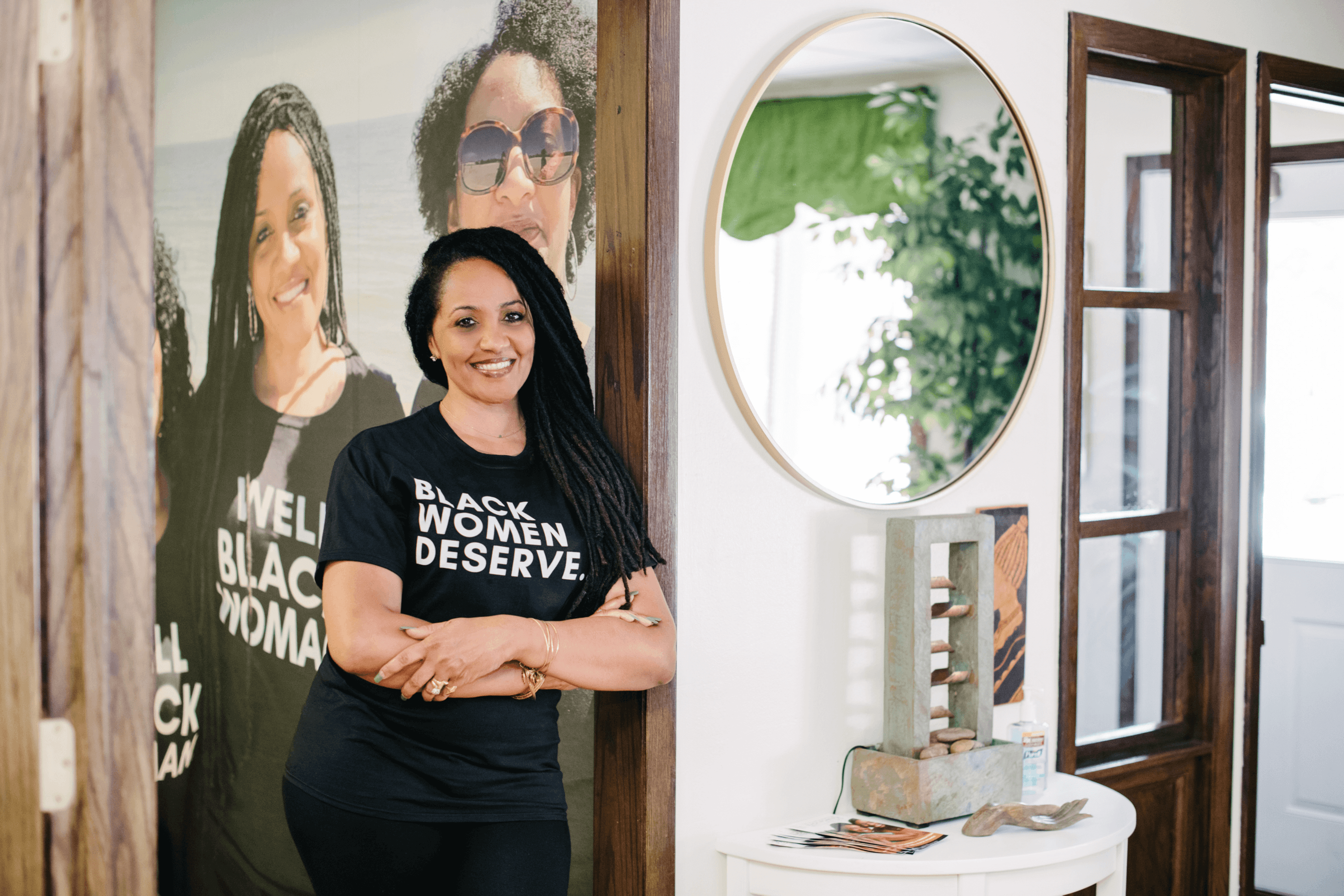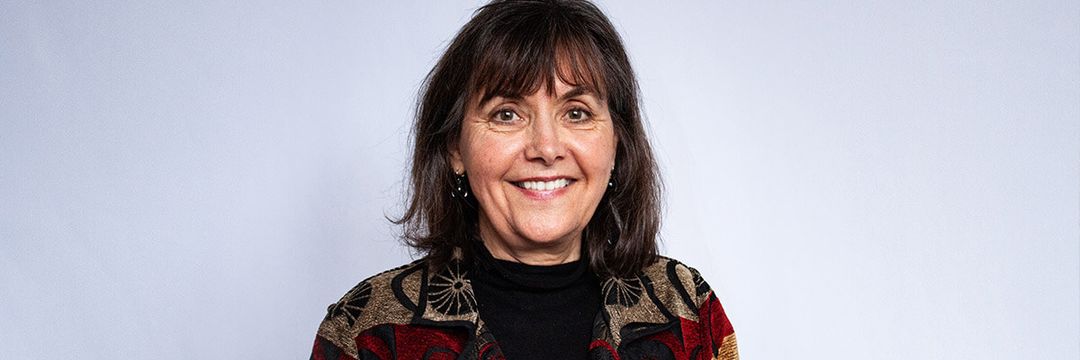“Never would I have imagined that I, a southern belle from Richmond, Virginia, would find herself in the Badger State, hundreds of miles away from the small, tight-knit community I had known all of my life.” Lisa Peyton-Caire ’96, MS’99 wrote that 14 years ago, reflecting on her Forward Under 40 alumni recognition, jointly held with her husband, Kaleem Caire ’00. A native of Madison, Kaleem had met Lisa at Hampton University and swept her away to UW–Madison in 1993. She admits she was ultimately surprised at how much she came to appreciate her time on the UW campus, but that didn’t keep the Caires in the area.
At the time of their award in 2008, the couple was living in the Washington, D.C. area with their five children, working together to reform education policy by establishing the Next Generation Education Foundation and advocating for greater federal investments in education. Peyton-Caire never imagined that Kaleem would pull her back to Madison again, but in 2011, there she was — a southern belle back in the Badger State.
Upon returning to Madison, Peyton-Caire shifted the focus of her advocacy work from education to Black women’s health and established the Foundation for Black Women's Wellness in 2012. A decade in, the foundation has expanded its outreach and health education to over 7,000 women in Dane County. In addition to sitting on numerous boards dedicated to health equity, including Wisconsin Governor Tony Evers’ Health Equity Council, Peyton-Caire is working to build a larger network of advocates through leadership training, internship programs for students across the nation, and community partnerships throughout Wisconsin’s counties.
Health equity advocacy is no easy task in Wisconsin — a state that leads the nation in racial health disparities. But Peyton-Caire is up to the challenge. Read more about the Foundation for Black Women’s Wellness and Peyton-Caire’s work to uplift Black Wisconsin women and their families.
What drives you to take on so much?
I started off at an early age understanding that the purpose of my life was to be of service and to drive change. I wasn’t necessarily clear on what that pathway would look like, but that really is the foundation from which I spring. That wiring really lends itself to knowing that my life will take on many journeys and pathways. What’s consistent in those many journeys is really working to leave the world a more just and open place of opportunity for everyone.
Do you get overwhelmed with the work you’re trying to do? How do you keep going?
I think when you make a personal decision to accept that you are going to follow a purpose and a calling, you take on the understanding that it’s going to come with ebbs and flows, and that it’s going to demand a lot. There’s this quote, “To whom much is given, much will be required.” I understood that I was given a lot of investment as a young person. A lot of people believed in me. I was blessed to have people surrounding me who were very committed to pouring into my talents and my development. I had great elders, parents, community, folks, teachers, and professors who made me aware that my gifts needed to be shared.
You’ve now founded the Foundation for Black Women’s Wellness. What inspired you to establish this organization in Madison?
In 2006, my mother passed away unexpectedly at the age of 64 from congestive heart failure. That really struck me in a way that changed the course of my entire career and the work that I have done since that time. Three years after she died, I started an event called, “Black Women’s Wellness Day” in honor of my mother’s life, and to call attention to her death as an example of the many deaths that Black women were experiencing across this country prematurely from largely preventable illnesses. That event that I started in 2009 steered my career in a new direction of very intentionally becoming a Black women's health advocate.
Around that time, my husband decided that he needed a career shift from what he had been doing in D.C. and decided that he wanted to return to Wisconsin. And, after much discussion, we agreed to make that move. It was his desire to transition back to his home state and city — to carry out more of his mission to realize major education reform in Wisconsin — that brought us back. And, in coming back in 2011, I brought that fledgling new work around Black women’s health advocacy. A year later, I established the Foundation for Black Women’s Wellness. And now it’s 10 years later — we’ve grown from a very small grassroots solo enterprise to a bona fide organization that is really changing the narrative around Black women’s health in Wisconsin.
What are some of the healthcare issues and deficiencies you see in Madison that your foundation addresses?
There’s so many. Wisconsin presently leads the nation in racial health disparities for Black women, Black babies, and Black families across just about every health outcome or quality of life measure that you could explore in the data. So, in terms of life expectancy, mortality rates, chronic illness rates, birth disparities, maternal mortality rates, infant mortality rates, we outrank our peers two to three times across all of those measures.
That’s what we’re working to change through the Foundation for Black Women's Wellness with a very particular and intentional focus on Black women. Because we know that Black women are the centerpiece of their families and their communities. And we also know, here in Dane County, that 65% of Black families are headed by Black women heads of households, and that, if we are able to bring transformation to how that woman’s life, and health, and opportunities look, we can begin to transform her entire family system’s health, stability, and opportunity outlook.
What programs at the Foundation for Black Women’s Wellness are you most excited about?
This year, I’m very proud that we have launched the Well Black Woman Institute, which is a health equity leadership academy that recruits women from across Wisconsin to become advocates in their local communities. The institute is extending and expanding the wings of the foundation across Wisconsin through the most powerful tool we have — women and their voices — to learn how to transform Black women’s health on a local level.
I’m super excited about the level of engagement that I’m now seeing. We have elevated the discussion of Black women’s health to a place of priority in this community and this state. We’ve taken this conversation all the way up to the governor’s mansion and to our state legislature. We are expanding our advocacy work. I’m also very excited that we have more listening ears and more of an outpouring of folks across many sectors — public, private, government, and business — who are saying, “What stake do we have in this? And how do we support Black women’s health?”









